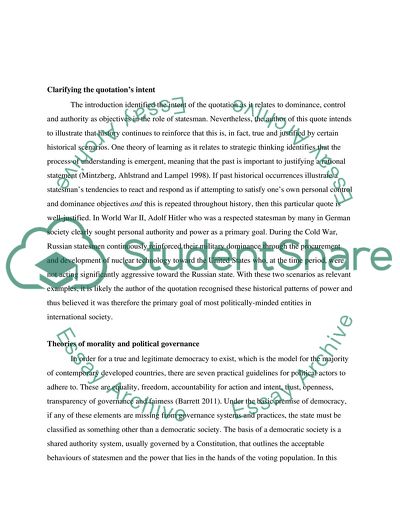Cite this document
(Impact of Power and Statesmen Research Paper Example | Topics and Well Written Essays - 3000 words, n.d.)
Impact of Power and Statesmen Research Paper Example | Topics and Well Written Essays - 3000 words. Retrieved from https://studentshare.org/politics/1780025-theories-of-international-relations
Impact of Power and Statesmen Research Paper Example | Topics and Well Written Essays - 3000 words. Retrieved from https://studentshare.org/politics/1780025-theories-of-international-relations
(Impact of Power and Statesmen Research Paper Example | Topics and Well Written Essays - 3000 Words)
Impact of Power and Statesmen Research Paper Example | Topics and Well Written Essays - 3000 Words. https://studentshare.org/politics/1780025-theories-of-international-relations.
Impact of Power and Statesmen Research Paper Example | Topics and Well Written Essays - 3000 Words. https://studentshare.org/politics/1780025-theories-of-international-relations.
“Impact of Power and Statesmen Research Paper Example | Topics and Well Written Essays - 3000 Words”, n.d. https://studentshare.org/politics/1780025-theories-of-international-relations.


